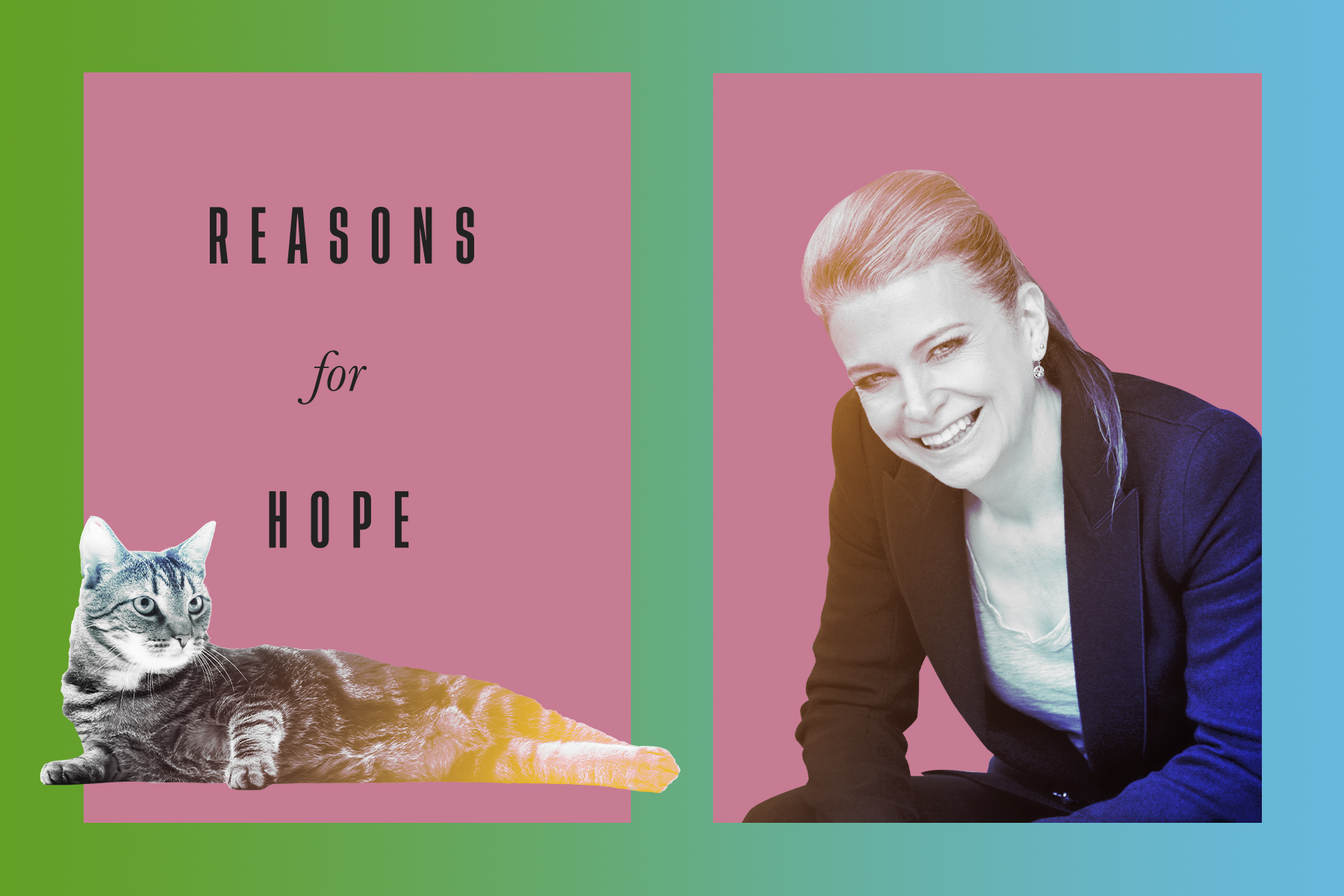
- Home |
- Search Results |
- Jane Fallon: We animals are adaptable. We bounce back.
Jane Fallon: We animals are adaptable. We bounce back.
Rescuing a feline friend with a troubled past gave the author of Worst Idea Ever a whole new perspective over lockdown. Whatever the world looks like after Covid, we'll be ready for it.
I adopted a cat during the pandemic. I didn’t mean to. I had lost my beautiful feline companion of the past 16 years just two weeks before the first whispers of a lockdown began, and my partner and I had decided to wait a while before we took on another commitment. To finally do some of the things we had been putting off for years – a long trip to Australia stopping off along the way maybe – without worrying about a pet pining for us at home. But then everything changed. Plans for trips and adventures fell like dominos. At first postponed, while we still had hope that this might all be over by the summer, by autumn, by Christmas. And then cancelled. As the weeks turned into endless months I started to feel the hole at the heart of my house expand. I wanted something to love. A reason to look outwards rather than in. Fostering seemed like a good option. A short term burst of mothering without the long term responsibility. We could lavish affection on a needy animal and then rejoice when it went to its permanent new family, knowing we had helped.
A huge sad-looking tabby arrived. She was four years old and had been rescued from a hoarding situation, where she had lived crammed in with 17 other cats, many of whom were generations of her own offspring. She wedged herself in behind the sofa in my office and slept for two days straight. On day three she started to emerge as I edged her food bowl further out into the room. She appeared downstairs on day four and sat on her haunches like a confused kangaroo, flinching at every strange noise. On day six she climbed up on the bed as we were going to sleep and curled up next to me in the exact same spot she has slept in every night since. When I woke up in the morning she hadn’t moved. Of course we were keeping her. It had never really been in doubt.
'I watched as she gradually shed her anxieties, marvelling at her resilience'
I watched as she gradually shed her anxieties, marvelling at her resilience. Her willingness to forget all the bad stuff she’d been through and trust in her future. Yes, she still attacks her meals as if she thinks 17 other hungry cats are going to appear and try to steal them out from under her nose at any moment, but she greets each day with an unbridled enthusiasm that I often wish I could muster myself. She plays with a passion bordering on obsession, subjects me to 10-minute-long love bombs – lying upside down on my lap, staring intently into my eyes and purring her thunderous purr – so intense they’re almost spiritual, sleeps like only a cat can sleep. Her past is firmly in the past.
We animals are adaptable. We bounce back. What feels like the longest year of our lives will – hopefully – fade to a blip for those of us lucky enough to have escaped personal tragedy, once a bit of time has passed. Consigned to a footnote in history. As they say, nature hates a vacuum. Normal life will resume one day and paper over the cracks. We’ll be at the theatre or a football game or sipping prosecco on a transatlantic flight and we’ll turn to each other and say ’remember when we couldn’t do this?’ It’ll become a memory, an anecdote, a past that we have moved on from. What emerges might not be exactly the same as before but we’ll acclimatise to it because that’s what we do.
What did you think of this article? Let us know at editor@penguinrandomhouse.co.uk.
Jane Fallon is the author of Worst. Idea. Ever.
Reasons for Hope is a series of essays to mark the one year anniversary of the Covid-19 crisis. The author's fee for this article is being donated to the National Literacy Trust. Read more of the essays here.
Image: Alicia Fernandes / Penguin.